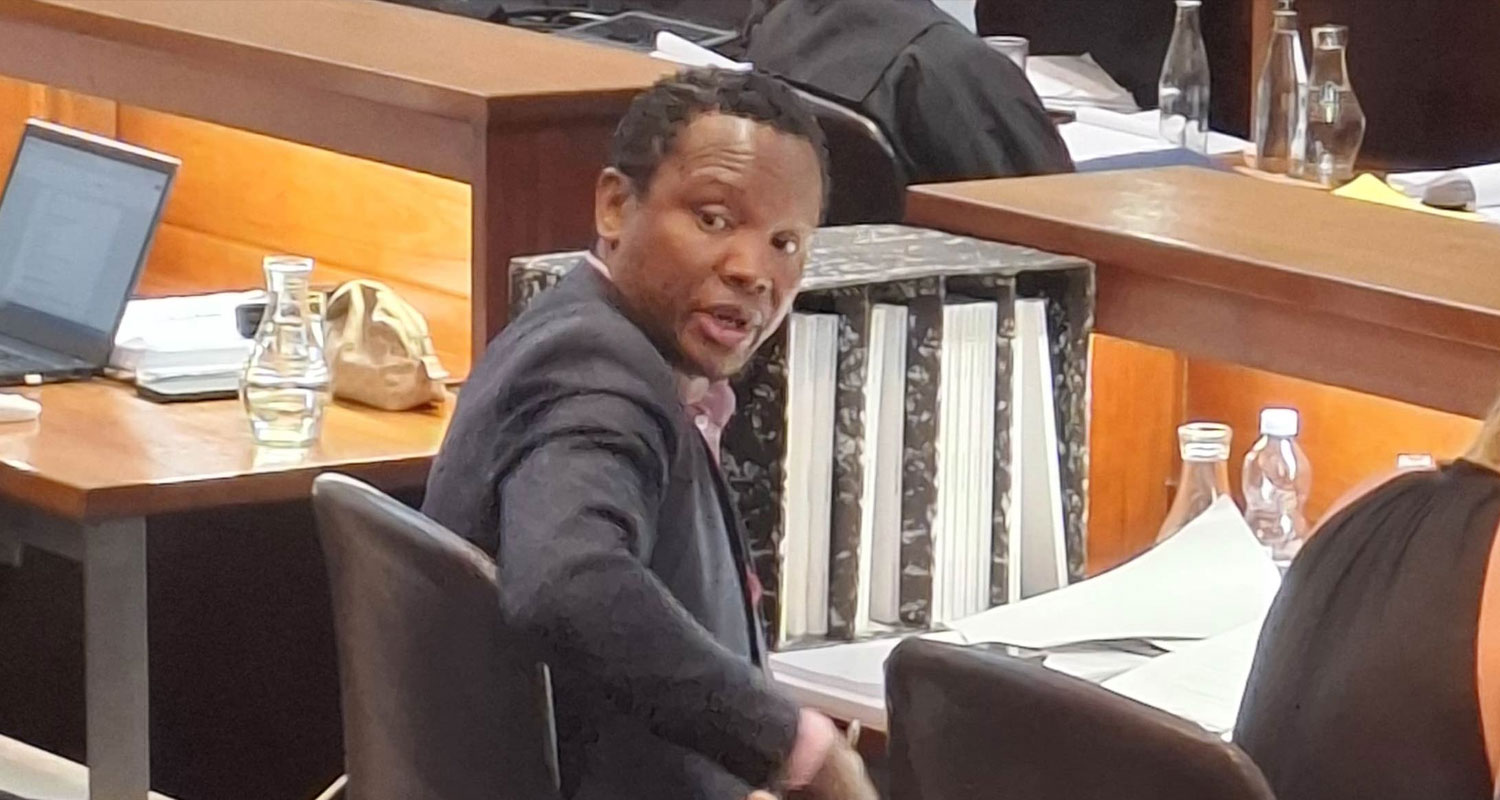The drawn-out “please call me” saga between Vodacom and its former employee, Nkosana Makate, is headed back to the supreme court of appeal in the coming weeks.
This is after the constitutional court in July ruled the matter must be heard by a new panel of judges.
As the 18 November date for what may be the final showdown between the parties approaches, Vodacom’s heads of argument – submitted to the court on 29 September and which TechCentral has seen – suggests the mobile operator’s legal team will anchor its case on the legitimacy of Vodacom Group CEO Shameel Joosub’s prior determination of how much Makate should be compensated for his idea.
Joosub in 2019 applied his mind and determined that Makate should be awarded R47-million for the invention.
“Mr Makate worked for Vodacom. He came up with a brilliant idea. Vodacom used his idea to develop its ‘please call me’ (PCM) product. The constitutional court held that Vodacom had agreed to pay Mr Makate reasonable compensation for his idea,” Vodacom’s legal team, led by Adv Wim Trengove, said in its legal papers filed with the appeal court in Bloemfontein. “The CEO (Joosub) manifestly exercised the judgment of a reasonable person and the compensation he awarded to Mr Makate is ample and, in any event, not ‘patently inequitable’.”
Makate’s legal team disputes this assertion, arguing that Joosub “grossly understated” figures used as inputs in his determination, leading to a “patently inequitable result”. Some of the factors cited as leading to a much higher determination is the time in which Vodacom failed to “honour its contract” with Makate, amounting to 18 years. Also contributing to a greater scale, according to Makate’s representatives, is the number of PCMs sent out on a daily basis: an average of 23.6 million.
‘Good deal’
“Of course the numbers are large … the number of PCMs sent daily is truly staggering,” Makate’s team, led by Adv Cedric Puckrin, said in its heads of argument.
Makate’s team wants Joosub’s determination overturned and replaced by one made by the high court, which put his compensation at between R28-billion and R110-billion. But Vodacom said Joosub’s R47-million determination is sound, given that he was tasked with determining a reasonable amount for compensation and with how that figure ought to be calculated.
Read: Key victory for Vodacom in high-stakes ‘please call me’ battle
“The CEO had to determine the amount. His mandate did not prescribe to him how to determine the amount or what form it should take. It did not say that the amount should be a percentage of the revenue. His mandate did not say that Mr Makate was entitled to a share of all revenue or any particular revenue, to an ongoing or indefinite share of revenue, or to a share of revenue for any particular period,” said Trengove.
Makate’s legal team argued that his request of 5% of the revenue generated by PCM messages that are responded to within the first hour of being sent is not unreasonable, adding that Vodacom is in fact getting a “good deal”.

“Mr Makate’s model only seeks 5% of the revenue generated from calls returned in response to PCMs within the first hour. Vodacom keeps 95% of that revenue from callbacks during the first hour and keeps 100% of the revenue for any calls responding to PCMs in hours 2 to 24 as well as hours 24 to 48. Vodacom also keeps all the revenue earned from callbacks from Telkom or another number,” Puckrin argued in Makate’s submission.
Makate’s legal team wants the court to uphold the determination made by the high court, which will lead to Vodacom’s appeal being dismissed by the court. Vodacom wants the court to uphold its appeal and have Makate pay for the costs of three legal counsel. Alternatively, Vodacom wants an order to have the determination of Makate’s compensation referred back to Joosub.
Whether or not Makate will be compensated for PCM is no longer in question, but the quantum of his compensation and how that ought to be determined is the key bone of contention in the saga’s next stage.
Read: ‘Please call me’ battle: YeboYethu warns of dire consequences for BEE
Makate’s heads of argument notes that three days after the 18 November court date will mark 25 years since Makate started working for Vodacom on 21 November 2001.
“Mr Makate’s entitlement flows from a proven contract that was dishonoured for 18 years. The high court – quite correctly – recognised the delay in compensating Mr Makate. Mr Makate was 24 years old when he invented PCM. He is now 49 years old,” said Puckrin. – © 2025 NewsCentral Media
Get breaking news from TechCentral on WhatsApp. Sign up here.



